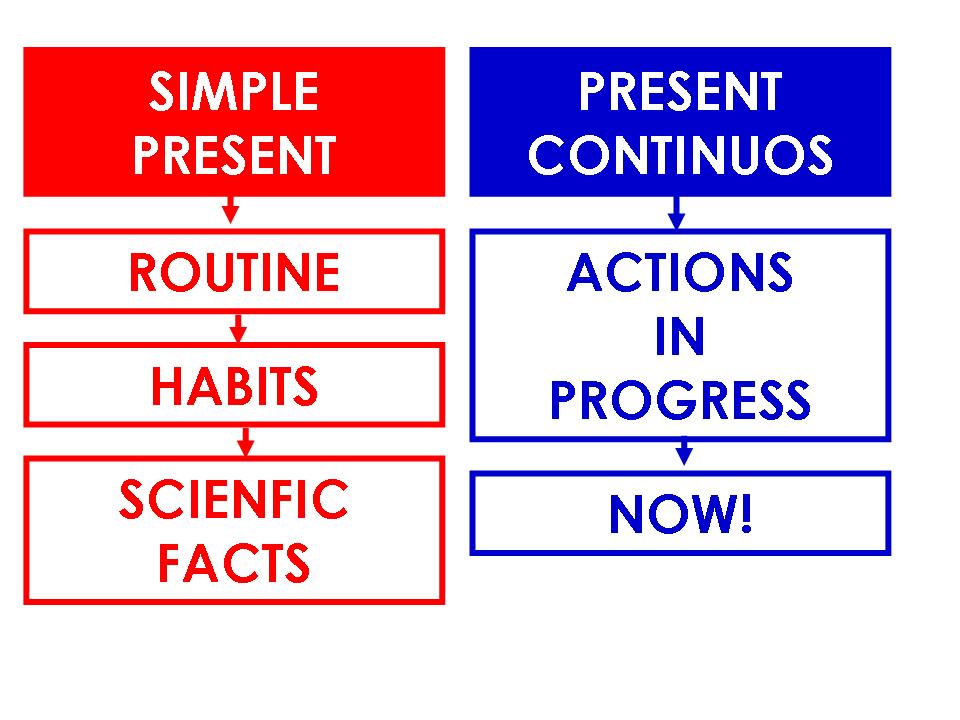Form
| Simple Present | Present Progressive |
|---|---|
infinitive
(3rd person singular: infinitive + 's')
I speak
you speak he / she / it speaks we speak they speak |
form of 'be' and verb + ing
I am speaking
you are speaking he / she / it is speaking we are speaking they are speaking |
| Exceptions | |
Exceptions when adding 's' :
| Exceptions when adding 'ing' :
|
See also explanations on Simple Present and Present Progressive
Use
In general or right now?
Do you want to express that something happens in general or that something is happening right now?
| Simple Present | Present Progressive |
|---|---|
in general (regularly, often, never)
Colin plays football every Tuesday.
present actions happening one after another
First Colin plays football, then he watches TV.
|
right now
Look! Colin is playing football now.
also for several actions happening at the same time
Colin is playing football and Anne is watching.
|
| Signal words | |
|
|
Note: The following verbs are usually only used in Simple Present:
be, have, hear, know, like, love, see, smell, think, want | |
Timetable / Schedule or arrangement?
Do you want to express that something is arranged for the near future? Or do you refer to a time set by a timetable or schedule?
| Simple Present | Present Progressive |
|---|---|
| action set by a timetable or schedule
The film starts at 8 pm.
| arrangement for the near future
I am going to the cinema tonight.
|
Daily routine or just for a limited period of time?
Do you want to talk about a daily routine? Or do you want to emphasis that something is only going on for a limited (rather short) period of time?
| Simple Present | Present Progressive |
|---|---|
| daily routine
Bob works in a restaurant.
| only for a limited period of time (does not have to happen directly at the moment of speaking)
Jenny is working in a restaurant this week.
|
Certain Verbs
The following verbs are usually only used in Simple Present (not in the progressive form).
- state: be, cost, fit, mean, suitExample: We are on holiday.
- possession: belong, haveExample: Sam has a cat.
- senses: feel, hear, see, smell, taste, touchExample: He feels the cold.
- feelings: hate, hope, like, love, prefer, regret, want, wishExample: Jane loves pizza.
- brain work: believe, know, think, understandExample: I believe you.
- Introductory clauses for direct speech: answer, ask, reply, sayExample: “I am watching TV,“ he says.
Click here to do some exercises.
Source: http://www.ego4u.com/

No comments:
Post a Comment